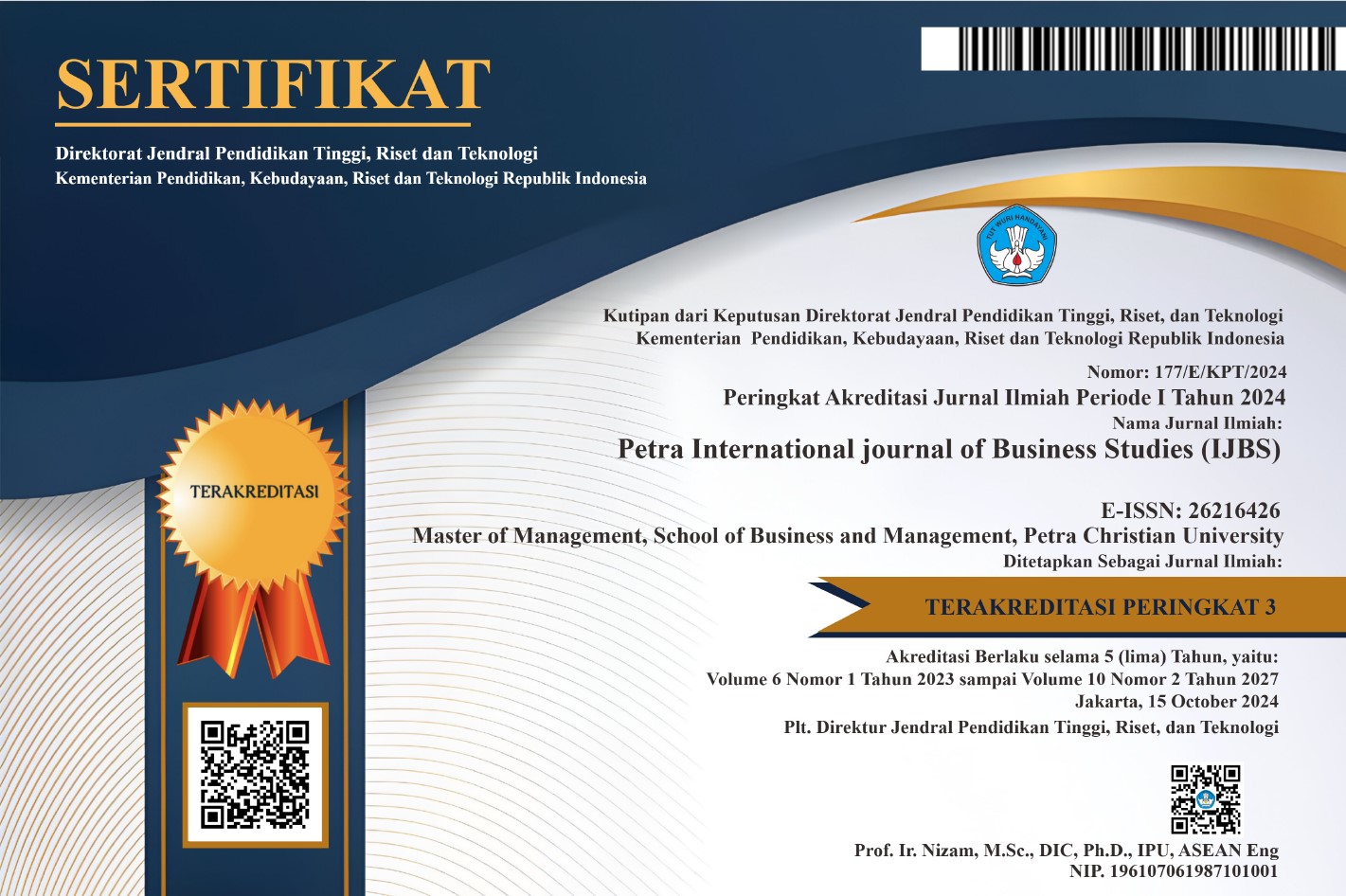Perceptions of Visitors towards the Implementation of Sustainable Tourism at Kawasan Ekowisata Mangrove Wonorejo, Surabaya
DOI:
https://doi.org/10.9744/ijbs.3.1.9-17Keywords:
ecotourism, Kawasan Ekowisata Mangrove Wonorejo, KEMW, mangrove, sustainable tourismAbstract
The purpose of this study is to determine visitors’ perceptions towards the implementation of sustainable tourism at Kawasan Ekowisata Mangrove Wonorejo (KEMW) as seen from the perspectives of the environmental, economic, as well as social dimensions. The research method used is descriptive quantitative by distributing questionnaires to 101 respondents as KEMW visitors. The study result shows that the implementation of sustainable tourism from the environmental dimension still prioritizes goals that lead to conservation. Sustainable tourism from the economic dimension is directed to provide benefit to the local economy. Whereas from the social dimension, KEMW has given visitors a sense of comfort and security. KEMW management is expected to be able to create more proactive programs, to educate visitors about conservation, and to involve the community to clean up waste in deeper forest areas. Moreover, the management should promote the variety of processed local mangrove products, as well as add facilities that provide easier access for visitors with special needs. Further research can be done by either measuring the level of visitor satisfaction towards the services of KEMW’s employees or identifying the impact of the presence of KEMW on the economic and social characteristics of the local population.
Downloads
References
Creswell, J.W. & Creswell, J.D. (2018). Research design: Qualitative, quantitative, & mixed methods approach. Los Angeles, CA: SAGE.
Hertati, D. (2017). Pengembangan ekowisata hutan mangrove berbasis masyarakat di Wonorejo Surabaya. Prosiding Seminar di Fakultas Ilmu Sosial dan Ilmu Politik Universitas Muhammadiyah Sidoarjo. Surabaya: Universitas Pembangunan Nasional Jawa Timur. e-ISSN 2598-1064
Kuntjoro, S., Rachmadiarti, F., Ambarwati, R., & Faizah, U. (2017). Kehati pamurbaya (Keanekaragaman hayati pantai timur Surabaya). Surabaya: Dinas Ketahanan Pangan dan Pertanian Kota Surabaya & Fakultas MIPA UNESA.
Lane, B. (1994). Sustainable rural tourism strategies: A tool for development and conservation, Journal of Sustainable Tourism, 2(1-2), 102-111.
Lans, W. & van der Voordt, T.J.M. (2002). Ways to study – Descriptive research. Delft, Netherlands: DUP Science
Min, W.W. (n.d.). Recent status and sustainable mangrove conservation in Myanmar (no number). Unpublished thesis, University of Yangon, Myanmar.
Murtini, S., Sumarmi, S., Astina, I.K., & Utomo, D.H. (2018). SWOT analysis for the development strategy of mangrove ecotourism in Wonorejo, Indonesia. Mediterranean Journal of Social Sciences. 9(5), 129-138.
Novelli, M. (2005). Niche tourism. New York: Routledge.
Nurcahyawati, V., Sutomo, E., & Sunarto, M.J.D. (2018). Pembuatan buku digital pada ekowisata mangrove Wonorejo Surabaya. J-Abdipamas, 2(2), 1-8.
Poitras, L. & Donald, G. (2006). Sustainable wine tourism: The host community perspective, Journal of Sustainable Tourism, 14(5), 425-448.
Swarbrooke, J. (1998). Sustainable tourism management. Wallingford, Oxfordshire: CABI Publishing.
Additional Files
Published
Issue
Section
License
Petra IJBS (e-ISSN: 2621-6426) is published by Master of Management program, School of Business and Management, Petra Christian University, Indonesia (MM SBM PCU).












